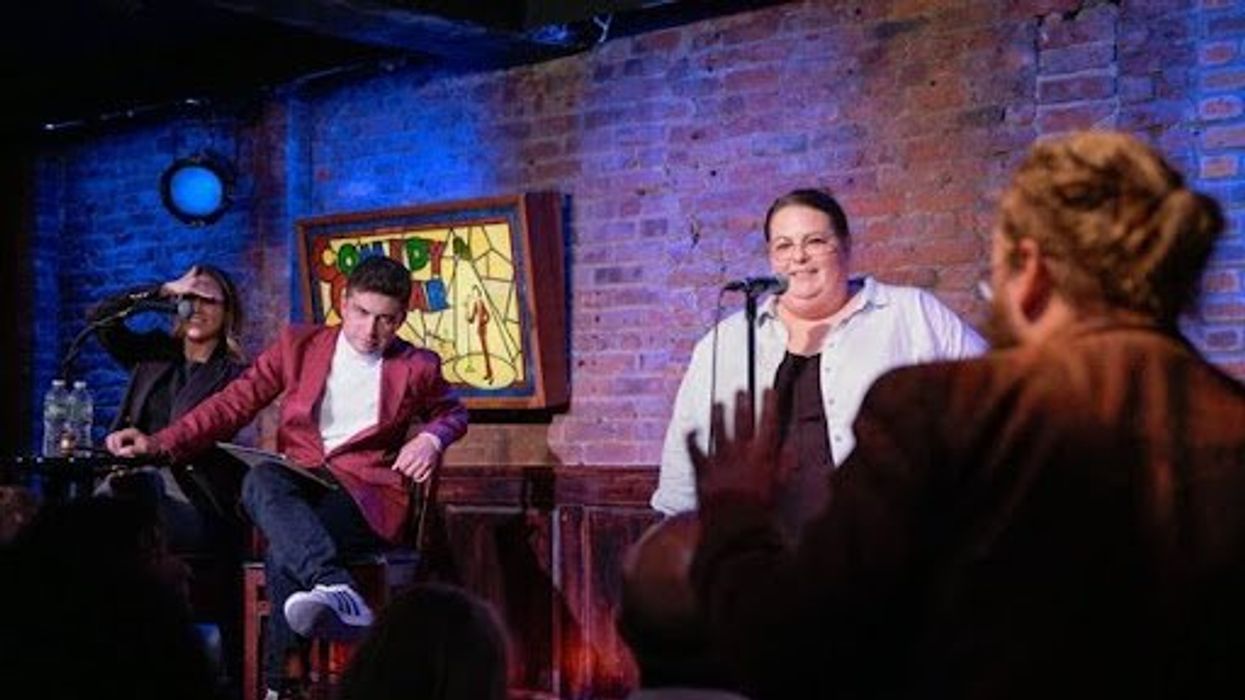Timmis is director of social media for Braver Angels and the blue co-chair of the Braver Angels NYC Alliance.
Almost every time my boyfriend and I get into an argument, he ends up making me laugh. He can’t help it — or so he says — because he’s a born-and-bred Irishman, with dark humor in his blood.
Usually when this happens — when I find myself fighting a smile — we end up forging a path through whatever conflict we’re entangled in. Suddenly the problem, though no less serious, feels like something we can take on together.
In the words of John Cleese, “A wonderful thing about true laughter is that it just destroys any kind of system of dividing people.”
In so many ways, humor is essential for our emotional, spiritual and psychological well-being.
It can offer an entry point into saying hard things, and an opportunity to repair when they don’t come out quite right. It can diffuse tension and strengthen bonds.
At its core, humor reminds us that we’re human.
It’s no surprise, then, that it’s also distinctly missing from our political landscape.
But does it have to be?
A few months ago, my friend Brent Morden — red co-Chair of the Braver Angels NYC Alliance — and I asked ourselves a question: Could we have a debate on a serious topic ... and make it fun?
We decided to host it at the Comedy Cellar, a legendary comedy club in Manhattan where some of the most prolific comedians have performed. (Dave Chappelle, Chris Rock, Robin Williams, Amy Schumer, Jon Stewart, and on, and on, and on.) We recruited our very own Luke Nathan Phillips to come up from Washington, D.C., and serve as debate chair. And we brought nearly 150 New Yorkers together on a Wednesday night for a debate on “Resolved: Smash the Patriarchy!”
My stomach was in knots leading up to the debate. It was the kickoff event to launch our new alliance, and we’d never hosted a big, in-person event in New York City before. How was this about to go?
As one man gleefully exclaimed directly following the debate, “No one punched each other in the face!” He was genuinely impressed. “This is New York City, after all. That’s not always guaranteed!”
There were periods of tension during the night, to be sure — times when the knots in my stomach only tightened. But there were also moments when speakers took on the spirit of the venue and cracked a few jokes — the audience erupting into laughter.
And then, after it was all over — once we survived our first big test — we headed around the corner to the Olive Tree Cafe to break bread and grab beers together. Suddenly, two people who had just been challenging one another were now happily chatting about something entirely different.
Humor and politics can be a tricky thing. We take politics seriously because the impact it has on people’s lives can be gut-wrenching and profound.
But maybe it could do us some good not to take ourselves too seriously. Maybe we can find a way to listen to and even laugh with one another again.
For more on humor and politics, check out “ Jesters and Fools,” a documentary featuring different comedians reflecting on the state of politics and political polarization.



















